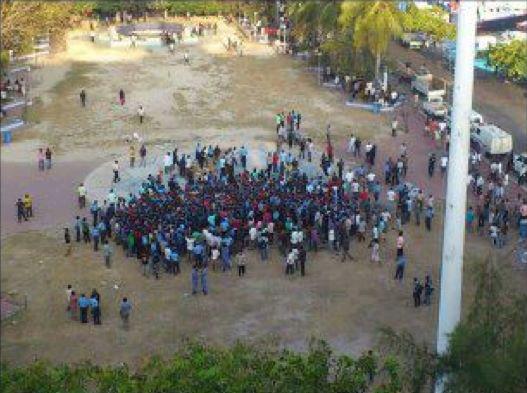Court says Feb 7 police brutality video altered, acquits officer
A police officer caught on camera brutalizing an opposition member on February 7, 2012, was cleared of charges after a criminal court judge ruled that the video of the assault was tampered with.

21 Nov 2015, 09:00
A police officer caught on camera brutalizing an opposition member on February 7, 2012, was cleared of charges after a criminal court judge ruled that the video of the assault was tampered with.
According to local media, the judge ruled that the video of police officer Mohamed Niyaz attacking Ahmed Shahid, MP Eva Abdulla’s husband, may have been altered as it was sourced from private TV stations, Villa TV and Raajje TV.
The court was not able to summon the police officer who had conducted analysis of the video as he was out of the country.
The criminal court has not published the ruling online yet.
Become a member
Get full access to our archive and personalise your experience.
Already a member?
Discussion
No comments yet. Be the first to share your thoughts!
No comments yet. Be the first to join the conversation!
Join the Conversation
Sign in to share your thoughts under an alias and take part in the discussion. Independent journalism thrives on open, respectful debate — your voice matters.




